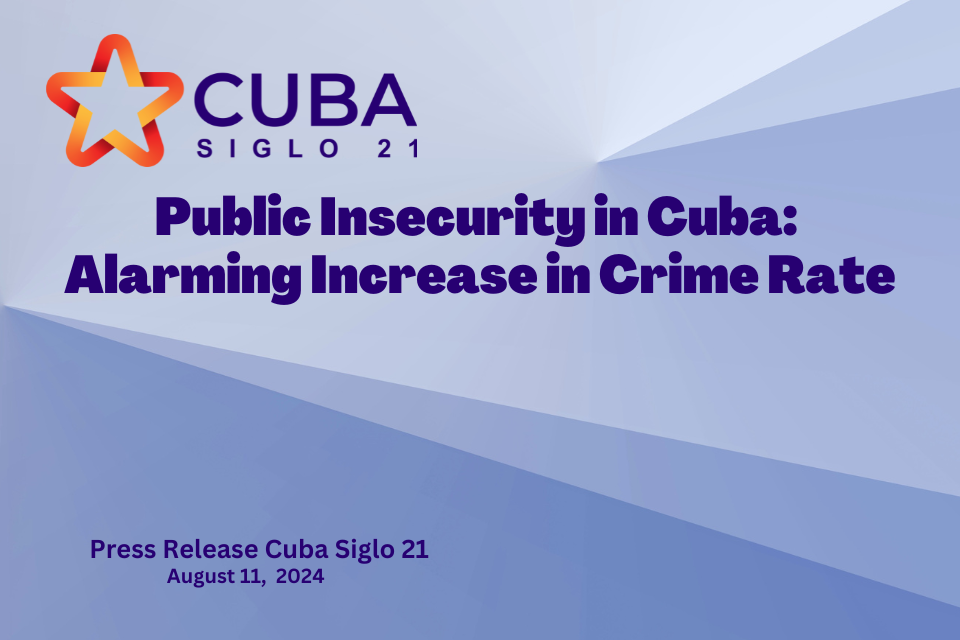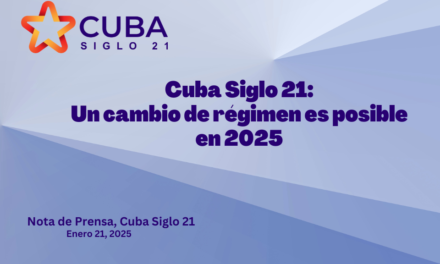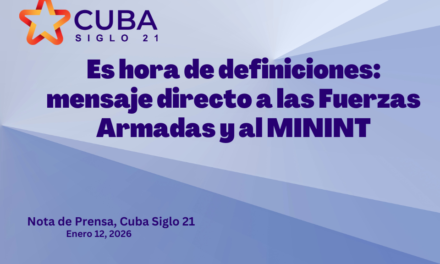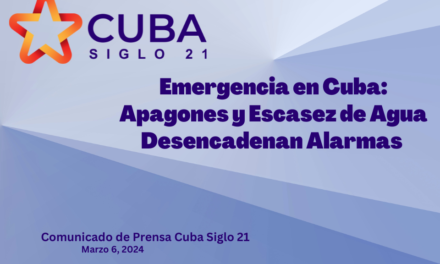January-June 2024
Summary report
Download full report in Spanish pdf
Download Report in English, pdf
Report 2023
Report summary
Download full report in Spanish pdf
Download Report en Español pdf
August 11, 2024 -Two reports published by the Cuban Observatory of Citizen Audit (OCAC) on public insecurity in Cuba reveal an alarming increase in crime on the island. Despite the lack of previous reports, it can be affirmed that 2023 was the year in which criminality began to be recognized as a problem in Cuba.
Among the main findings, in 2023 the months of July and June were the most violent months of the year, with a notable increase in crimes ranging from robberies to murders. Of the 649 crimes reported, 265 were robberies, 199 people were murdered in 197 incidents, and 124 people suffered assaults.
OCAC states that between January and June 2024, a total of 432 crimes were recorded, representing a daily average of 2.37 crimes, marking a 152% increase compared to the same period in 2023. (1.82 crimes per day in 2023).
The multi-systemic crisis in Cuba has fostered not only an increase in the crime rate but also a culture of criminality. The analysis shows a worrying increase in violent crime in 2024, highlighting a 111% growth in murders, a 290% increase in assaults and a 208% increase in robberies in the first half of 2024.
These reports are based on a thorough monitoring system of complaints, notes and statements published in social networks and both state and independent media, in order to verify and triangulate the information obtained, although due to the lack of transparency of public information, the figures may be higher. Therefore, the comparison of the first semester of 2024 with the same period of last year is relevant and a significant worsening of public safety can be evaluated.
The reports dedicate a section to the increase in corruption, youth gangs and drug consumption. Undoubtedly the most powerful and dangerous expressions of organized crime on the island are those related to the illicit activities sustained by the new mafia oligarchy using GAESA in its connection with other transnational organized crime actors such as Venezuela, but organized criminal activity is emerging at much lower levels as well. The events at the Finca de los Monos in Havana last June have made it impossible to remain silent about the emerging phenomenon of gangsterism in Cuba. Since January 2024 the Ministry of the Interior (MININT) in Santiago de Cuba has recognized the existence of criminal gangs dedicated to “implementing terror” among the population.
OCAC attributes this increase in crime to several factors, such as the defunding and degraded professionalization of the police, changes in social and cultural values, and a growing perception of impunity and corruption within the Cuban judicial system.
The researchers also highlight the manipulation of the public narrative by the Communist Party of Cuba (PCC) and MININT, who attempt to minimize the perception of insecurity by creating a “parallel virtual reality” to control public opinion. In addition, it warns of the government’s inability to manage the growing criminality and violence.
OCAC urgently calls on the Cuban authorities to transparently address this worrysome situation, although it believes that improving public safety can only be achieved with a comprehensive change in the current model of society, radically transforming the country’s economic, social and political structures.







